9th East Asian Regional Conference in Alternative Geography (EARCAG)
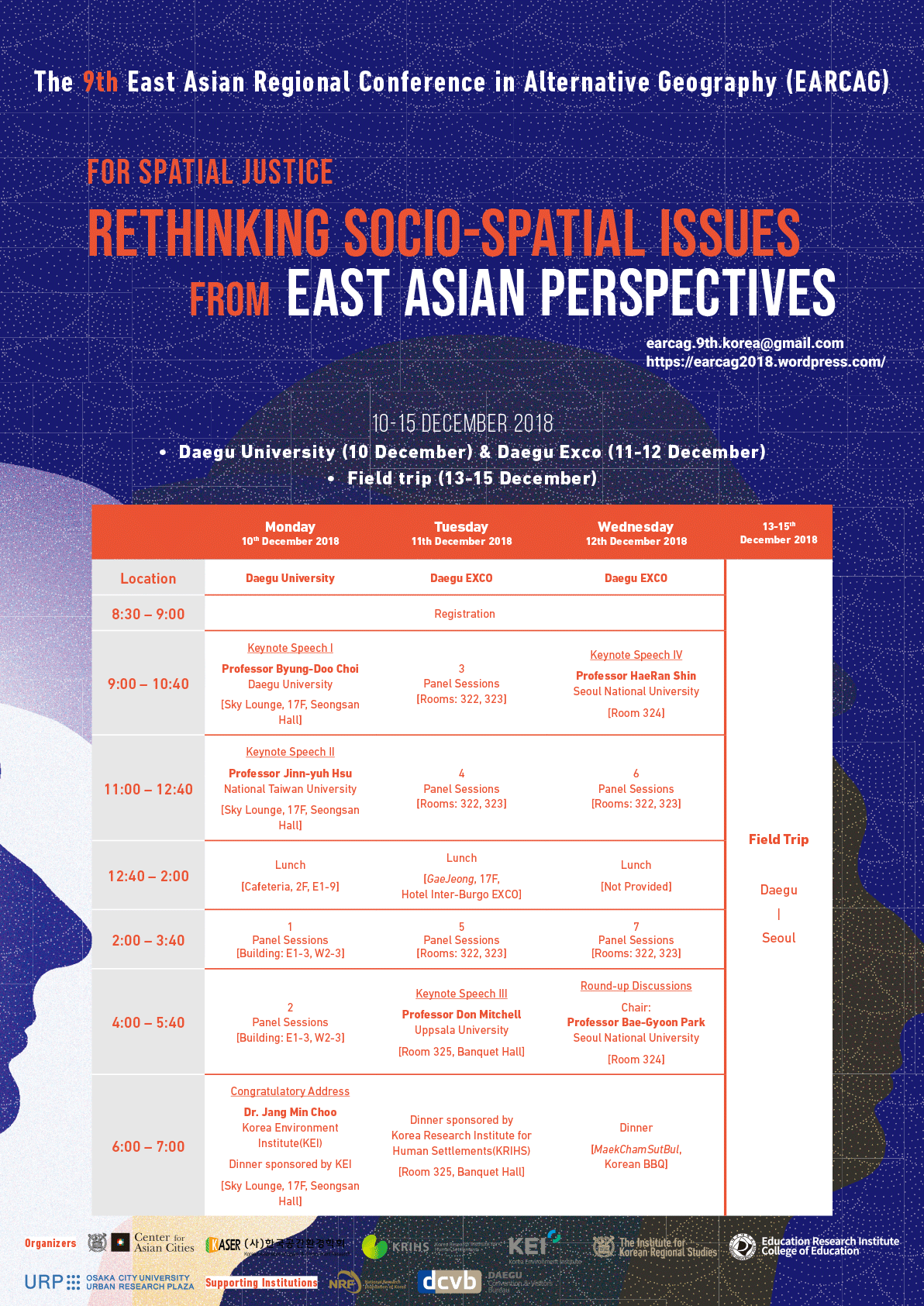
International Conference
- Dates: Monday-Saturday, December 10-15, 2018
- Venues: Daegu University & Daegu Exco
- Organizers: SNUAC Center for Asian Cities, Korean Association of Space & Environment Research, Korea Research Institute for Human Settlements, Korea Environment Institute, SNU Institute for Korean Regional Studies, DU Education Research Institute, Osaka City University URP
- Sponsors: National Research Foundation of Korea, Daegu Convention & Visitors Bureau
Abstract
9th EARCAG
For Spatial Justice: Rethinking Socio-spatial Issues from East Asian Perspectives
- Date: 10 (Mon) – 13 (Thurs) December, 2018
- Venue: Daegu University (10 December) and Daegu Exco (11-13December), South Korea
Conference Aims and Theme
In January 1999, the East Asian Regional Conference in Alternative Geography (EARCAG) was held in Gyeongju and Daegu, South Korea, where twenty scholars assembled to discuss research on the theme of ‘Socio-Spatial Issues for East Asian Countries in the 21st Century’. Since this inaugural gathering, scholars within the expanding EARCAG network have witnessed complex socio-spatial changes in East Asia that have served to produce and re-shape various forms of inequality, injustice, and precarity, and they have sought to critically examine these issues from East Asian perspectives.
Twenty years later, at the same location as EARCAG’s first conference in South Korea, we will revisit these socio-spatial questions with the hopes of promoting spatial justice. We are particularly interested in considering the relationship between East Asian spaces and the variety of methods that both guide the organization of space and our understandings of that space.
The aim of EARCAG is to provide a platform for critical geographers and other social scientists to debate social and spatial issues in East Asia. Critical social scientists have observed increasing complexities, interdependencies, and inequalities in the development of capitalism and geopolitics over the world. Recent geopolitical tensions, particularly in East Asia, have produced convergent social and spatial concerns. What are the socio-spatial issues that act as impediments to spatial justice in East Asia? How are the issues approached in relation to Asian capitalism, politics, and the affects thereof?
Potential session topics include but are not limited to:
- Division, conflict and peace in East Asia
- Embedded developmentalism and spatial justice in post-developmental-state society; post-territorial dynamics of spatial justice
- Right to the cities and urban commons
- Geography of precarity; increasing precarity and the precariat’s spatial dynamics and precarious spaces
- Gender, Space and Justice; Gendered migration within and from East Asia
- Alternative spaces for spatial justice; critical geopolitics for spatial justice
- Mobilities as threats to and possibilities for spatial justice; Mobilities promoted and mobilized under the post-developmental state
- Challenge of climate change and risk governance in East Asia
- Environmental justice; critical geography for nature and the environment
- Technology development and spatial justice in a smart era
- Urban alienation and just city in East Asia
- Uneven regional development and spatial justice
- Equity issues in cities and regions under Neo-liberalism; Planning and policy issues for social justice from East Asian perspective
- Transnational migration, multiculturalism, and global justice
The details of this conference can be found at https://earcag2018.wordpress.com/
Review
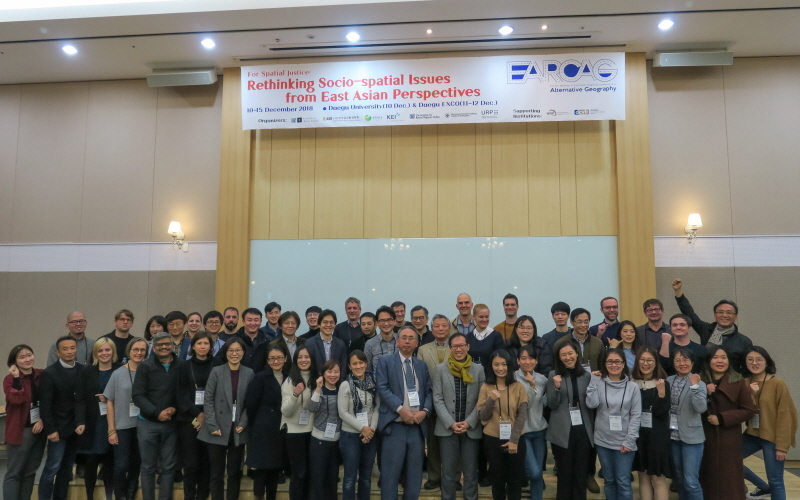
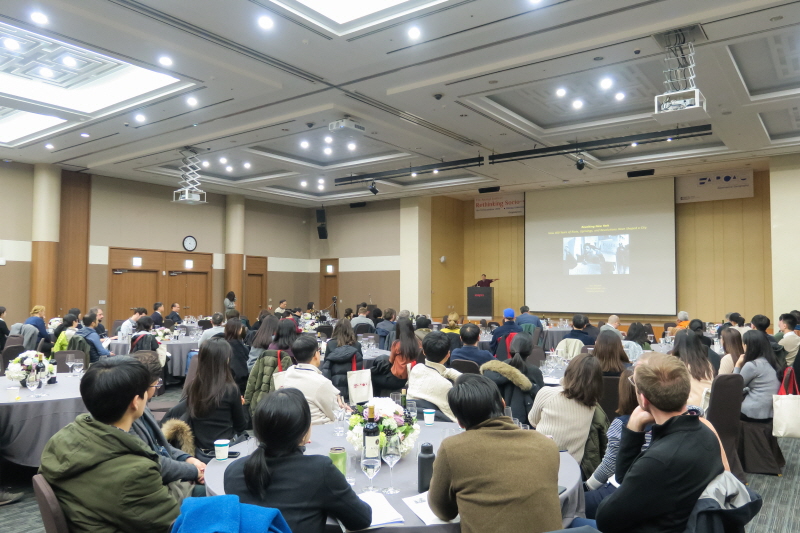
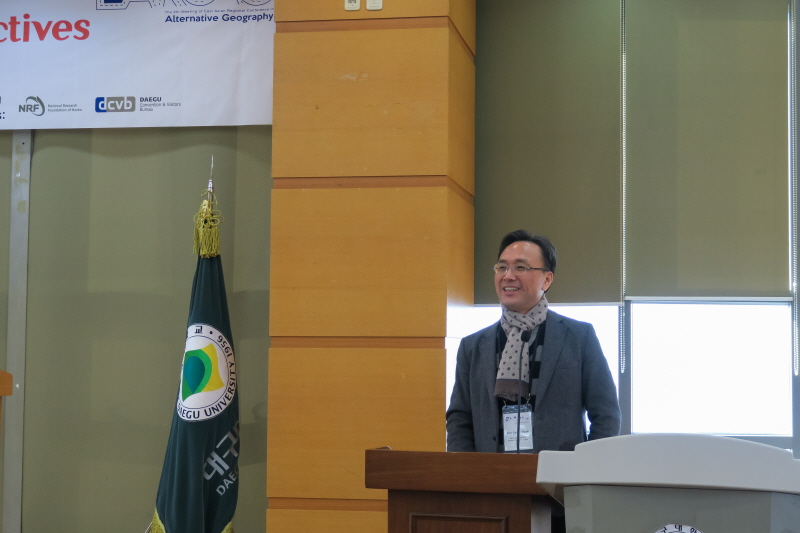
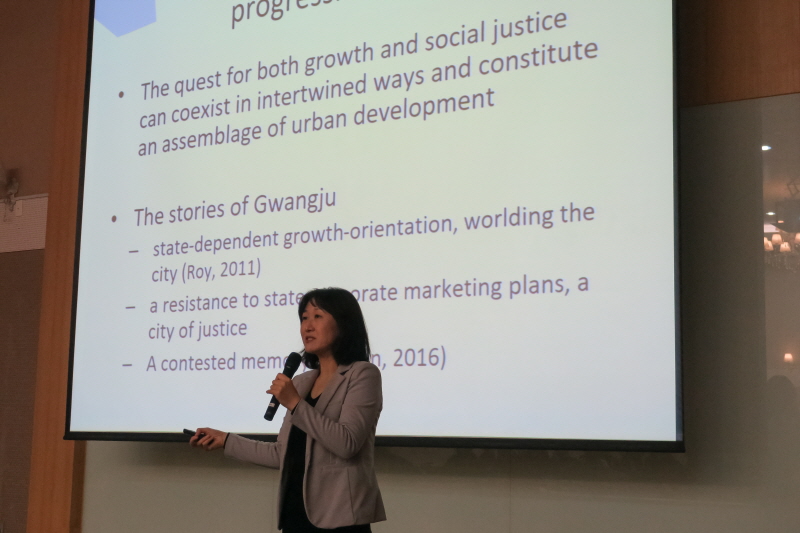
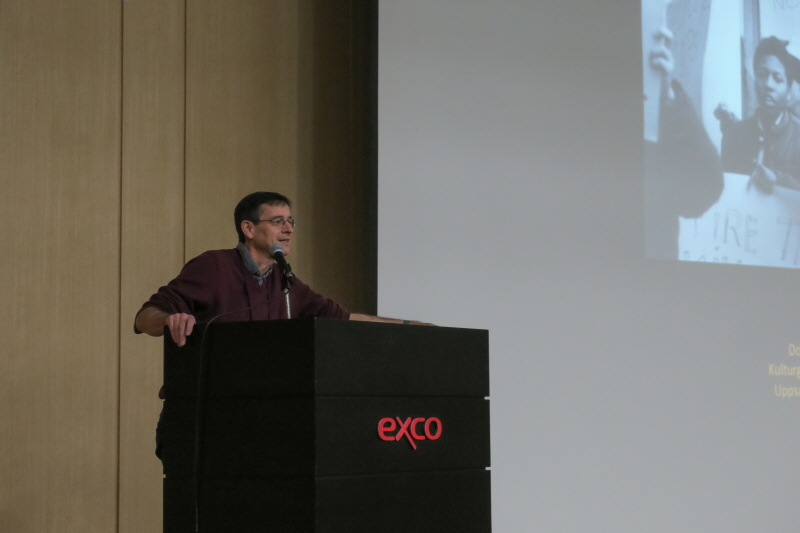
The 9th East Asian Regional Conference in Alternative Geography (EARCAG) themed “For Spatial Justice: Rethinking Socio-spatial Issues from East Asian Perspectives” was co-organized by SNUAC Center for Asian Cities on December 10th to the 12th at Daegu University and Daegu Exco. This conference was co-organized by SNUAC Center for Asian Cities, Korean Association of Space & Environment Research, Korea Research Institute for Human Settlements, Korea Environment Institute, SNU Institute for Korean Regional Studies, DU Education Research Institute, and Osaka City University URP; and was co-sponsored by the National Research Foundation of Korea and Daegu Convention & Visitors Bureau.
This international conference brings together renowned scholars from around the world seeking to critically examine complex socio-spatial changes in East Asia from the East Asian perspectives since its inaugural meeting in 1999. Various issues surrounding socio-spatial issues including spatial justice, regional development, gender, housing, environment, governance, and transnational migration were presented and discussed at this event. Discussions seeking for more inclusive and righteous socio-spatial space followed.
Keynote speeches on spatial justice by Professor Byung-Doo Choi (Daegu Univ.), Professor Jinn-yuh Hsu (Nat’l Taiwan Univ.), Professor Don Mitchell (Uppsala Univ.), and Professor HaeRan Shin (SNU) were followed by the 28 individual sessions and the general discussion session where approximately 100 scholars participated. The participants had the opportunity to visit various regions including Daechuri Peace Village and US military base in Pyeongtaek under the theme of ‘Exploring the Cold War Landscape/Vestiges of War of the Korean Peninsula’ after the conference. The 10th EARCAG is scheduled to be held in Taipei, Taiwan in 2020.
